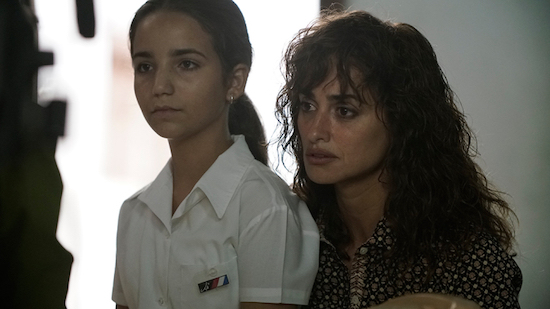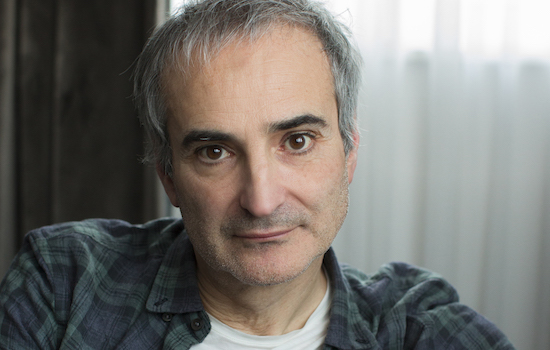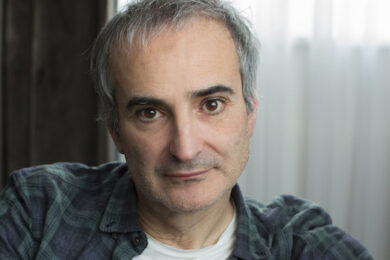For 35 years now, the sometimes-controversial French film director Olivier Assayas has been thrilling and confounding audiences on the fringes of the arthouse and the multiplex with films frequently deploying genre tropes, always in service of a deeply personal and auteurist vision. With a new boxed set of four of his earlier films being released in the UK, The Quietus spoke with Assayas about his inspirations and influences, as well some of the obstacles he has encountered in the filmmaking process.
The Quietus: Was it your interest in punk rock that inspired you to make your debut feature, Disorder, about romantic entanglements within a post-punk band?
Olivier Assayas: It was a metaphor for youth slipping away. I was 29 when I wrote the screenplay, I was 30 when I shot it. It’s this notion that you grow up as a teenager, as a young man, you’re part of a group, you’re part of a scene. I had this sense when I was making Disorder in the mid-80s that whatever was exciting about the punk rock years and the energy and the rebellion was fading away, the same way that a lot of friendships were, and it kind of closes down on the couple.
You’re part of a band of brothers or whatever and at some point in your life, you have to find your own path. Usually, you find it’s for a couple. Not exactly married life, but all of a sudden, there is a shift in the focus of your life and your energies.
Sonic Youth composed the score to Demonlover, your 2002 thriller set in the world of violent pornography. Why did you pick them to do it?
We met when I did Irma Vep. We had a common friend, Michael Shamberg, who was running Factory Records US at the time. He brought Thurston and Kim to the screening at the New York Film Festival and we really got along and stayed in touch. When I was preparing Demonlover, I had a notion that it was something that connected with whatever Sonic Youth were doing in terms of improvised music. So I suggested a method whereby instead of music being a secondary or latent part of the process, it became an organic part of making the film.

Every week, we would send them images, a selection of dailies, and they would send back music, noises, whatever those images inspired them. I gave that stuff to the actors, I listened to it myself, and so there was this kind of organic cooperation between scoring the film and making the film. At that time, they famously had their own studio on Murray Street in New York, and that’s where they recorded most of that stuff. The process was interrupted by 9/11, which happened near the end of our shoot, when we were in Mexico, shooting in the desert. All of a sudden, the communication with Sonic Youth was cut, because they didn’t have access to their own studio. So we didn’t take the process to its logical conclusion, that being the finalisation of the score at the same time as the completion of principal photography.
So there was a second layer of improvisation, which happened in the studio a few months later when we had finished editing the film. The whole process was fascinating, because it was one of the first times I did the sound editing on AVID, which was the same program musicians were using at that time. It was very new, and in terms of technology, music was always ahead of cinema. During the sound editing of the film, we exchanged AVID sessions, which meant with my sound editor, we could remix some Sonic Youth stuff to adapt [it] very precisely to the base of the specific scenes in which we were using that music.
Were there any horror or haunted house movies that influenced the writing and making of Personal Shopper?
Horror movies have always been a major influence and it’s something I never went all the way with. When I started writing Personal Shopper, I thought, “Let’s try and make a movie that deals with the supernatural. A movie that deals with the invisible openly.” All my films, in a way, deal with the invisible, but more in the form of undercurrents. In the case of Personal Shopper, it’s pretty much what it is, the subtext of the film. I didn’t want to make a “scary movie”. I wanted to make an unsettling movie that had to do with the porous border between what is real and what is not, what we imagine and what the world is, someone who’s walking that very thin line, and who is always on the brink of falling on one side or the other.
I also had this notion that a lot of the horror movies I love are American and made by American filmmakers. America has this Manichean belief that what is visible is good and what is not visible is evil, that there is something very destructive, very negative lurking in the obscurity. It’s not something I share. I’m the opposite of that. I think there is something fascinating lurking in the darkness. I think there is something that can be beautiful, that can be profound. I think dealing with the invisible and understanding the paths of the invisible is something that can be vital, essential in our understanding of the world, our vision of the world. I always saw Personal Shopper as a movie that had to do with the supernatural, but a supernatural that has to do with helping you find your identity, helping you find yourself, helping you in mysterious ways to move forward.

Did you intend for Wasp Network to portray anti-Castro groups sympathetically?
No, I have no sympathy whatsoever for the Castro regime, which has been taking its people hostage for half a century. I have no particular sympathy for the anti-Castro groups in Miami, who have been involved in terror operations and are definitely not sympathetic characters. It’s very hard politically to relate to those guys. The only thing I relate to is the suffering of the Cuban people.
I think the extremism of Miami Cubans and Cubans from Cuba has blocked any coherent solution to the politics in that area of the world and the ones who have come to suffer are the Cuban people. Honestly, I was not so interested in politics when I was making the film. To me, it was more about making a post-script to Carlos, in terms of dealing with what terrorism was about as seen through the eyes of characters who I tried to make as real, and eventually as likeable, as possible. It’s similar to Carlos in the sense that it’s about individuals drawn into the chaos of local politics and whose lives are crushed. So to me, the essential element was how it was viewed through the eyes of the two main female characters, i.e. the characters played by Penelope Cruz and Ana de Armas. They are the victims, and the film is seen through their sensibility and emotions.
The Films of Olivier Assayas is out on Blu-Ray via Arrow Video now.



